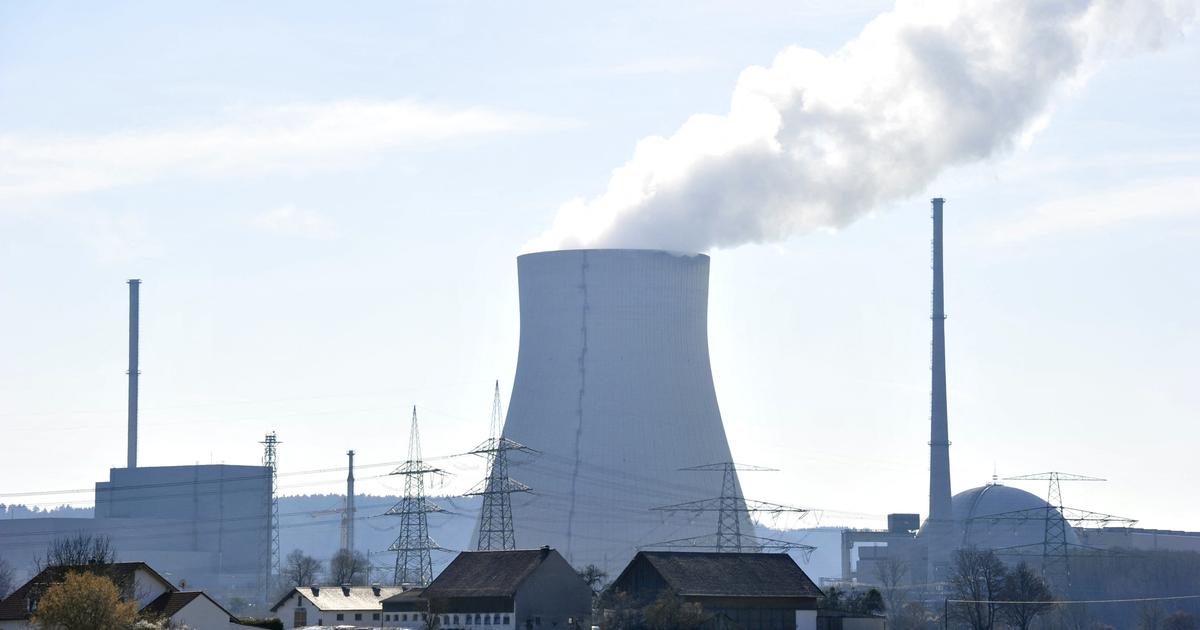Germany, which intended to definitively close its last three nuclear power plants at the end of the year, will finally leave two on standby until mid-April 2023 to deal with possible electricity shortages.
Following a new grid stress test, two of the three remaining power plants "
will remain available until mid-April 2023 if needed
", Economy Minister Robert Habeck said in Berlin on Monday, returning as well as on the timetable for the closure of nuclear power plants announced by Angela Merkel after the Fukushima disaster in 2011.
“
It is certainly very unlikely that the electricity system will experience crisis situations for a few hours during the winter, but that cannot be completely ruled out at present
”, justified the Ecologist Minister of the Economy.
Two power plants in the south of the country, Isar 2 (near Munich) and Neckarwestheim 2 (Baden-Württemberg, south-west), will thus remain on standby to deal with any energy emergency.
A debate that agitates the political class
New fuel elements "
will not be loaded and in mid-April 2023, it will also be finished for the
emergency reserve", he assured.
"
Nuclear energy is and remains a high-risk technology and highly radioactive waste weighs on dozens of generations to come
", underlines the Minister.
The environmental vice-chancellor was one of the most reluctant to such an extension, insistently demanded by their liberal allies within the government coalition.
For Robert Habeck, "
a global extension of the lifetime would not be defensible, even with regard to the state of safety of nuclear power plants
".
“
We cannot play with nuclear energy
”.
He mentioned a "
series of uncertainty factors
" to justify this choice, which risks irritating the Greens, historical opponents of nuclear power.
In addition to the restrictions on Russian gas deliveries, Robert Habeck cited the fact that around half of the nuclear power plants in France were shut down and the drought, which is weakening the production of hydroelectric power plants in neighboring countries.
Read alsoIn Germany, replacing coal and nuclear will be expensive
This decision is the result of an expertise, called “
stress-test
”, carried out by the four managers of the German electricity network, 50Herz Transmission, Amprion, TenneT TSO and TransnetBW.
At the beginning of August, Chancellor Olaf Scholz had prepared the ground with a population traditionally unfavorable to nuclear power: It "
may still make sense
" not to cut the last power stations in the country from the network, he had estimated.
Facing the threat of an energy shortage
A first test in March had concluded that the three nuclear power plants still in operation in Germany were not necessary to ensure the energy security of the first European economy.
These currently produce 6% of Germany's net electricity production.
"
It's a debate that traditionally makes waves in Germany, which arouses a lot of emotions
," admitted Robert Habeck to the press about this bone of contention for the coalition.
Faced with the threat of an energy shortage this winter, the German government has already decided to increase the use of coal, a particularly polluting energy.
Last week, the Russian giant Gazprom announced that its Nord Stream gas pipeline linking Russia to northern Germany, which was due to resume service on Saturday after maintenance, would finally be “
completely
” stopped until a turbine was repaired. of this vital pipeline for supplying Europeans.
Read alsoGermany, perceived as the weak link in the EU, under pressure from the Kremlin
On Sunday, Chancellor Scholz wanted to be reassuring: Germany “
will be able to cope with this winter
” and ensure its energy supply despite the drying up of Russian gas deliveries on which its economy is highly dependent, he said.
But he also stressed that changes at European level in the electricity market were needed.
As in other EU countries, the rise in prices is fueling public concern and calls for demonstrations, mainly at the initiative of the far right or the far left, are worrying the government.
Since the beginning of the Russian invasion of Ukraine at the end of February, the government of Olaf Scholz has released massive aid in favor of purchasing power.
Germany is not the only country to reassess its stance on nuclear power after Russia's invasion of Ukraine.
At the end of August, Japanese Prime Minister Fumio Kishida announced that a reflection was going to be launched on the possible construction of “
new generation nuclear reactors, equipped with new safety mechanisms
”.

